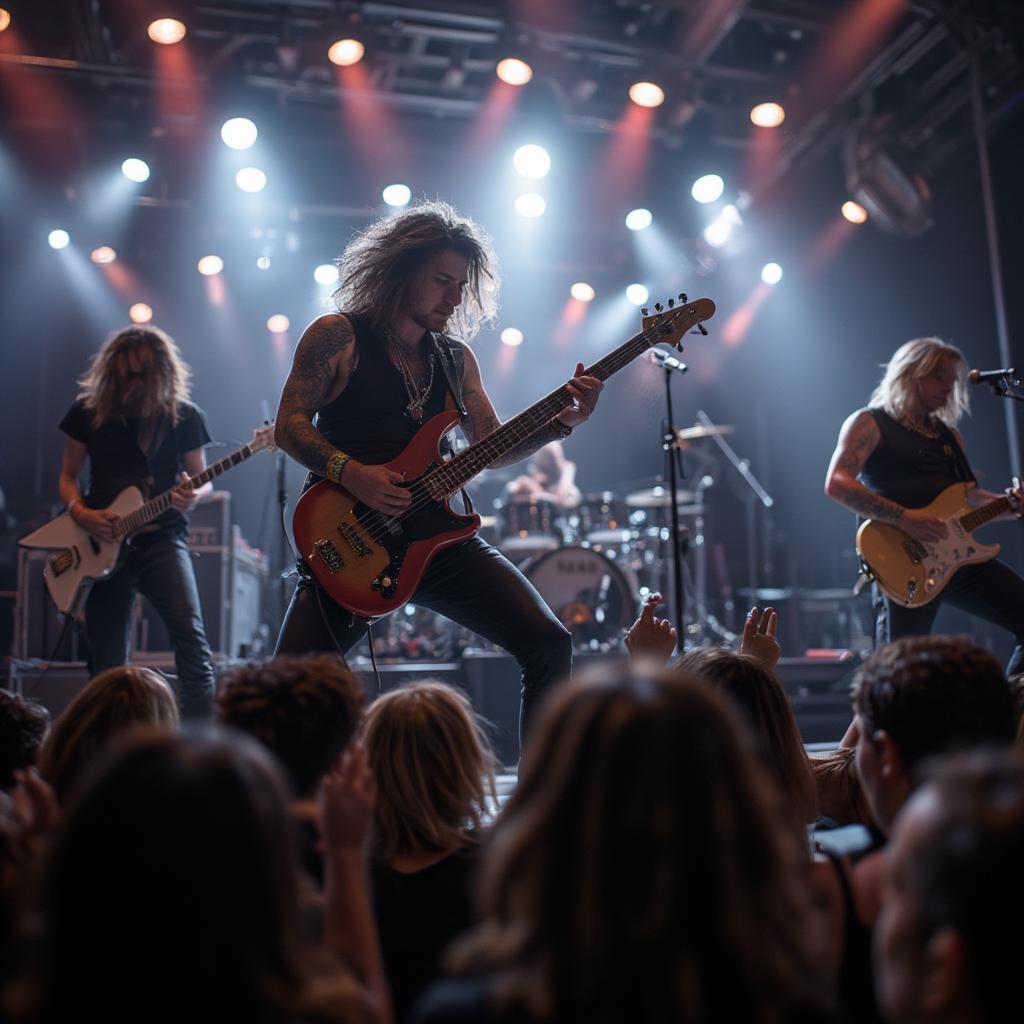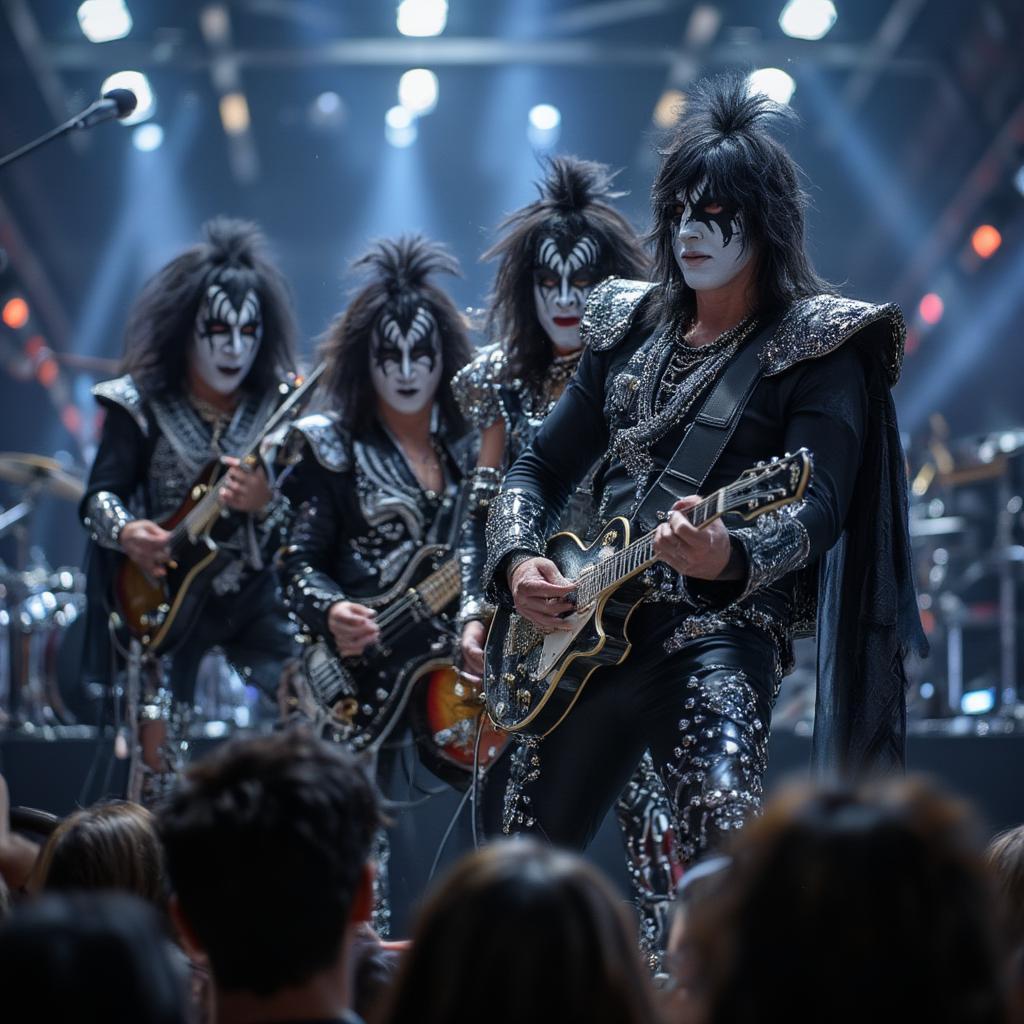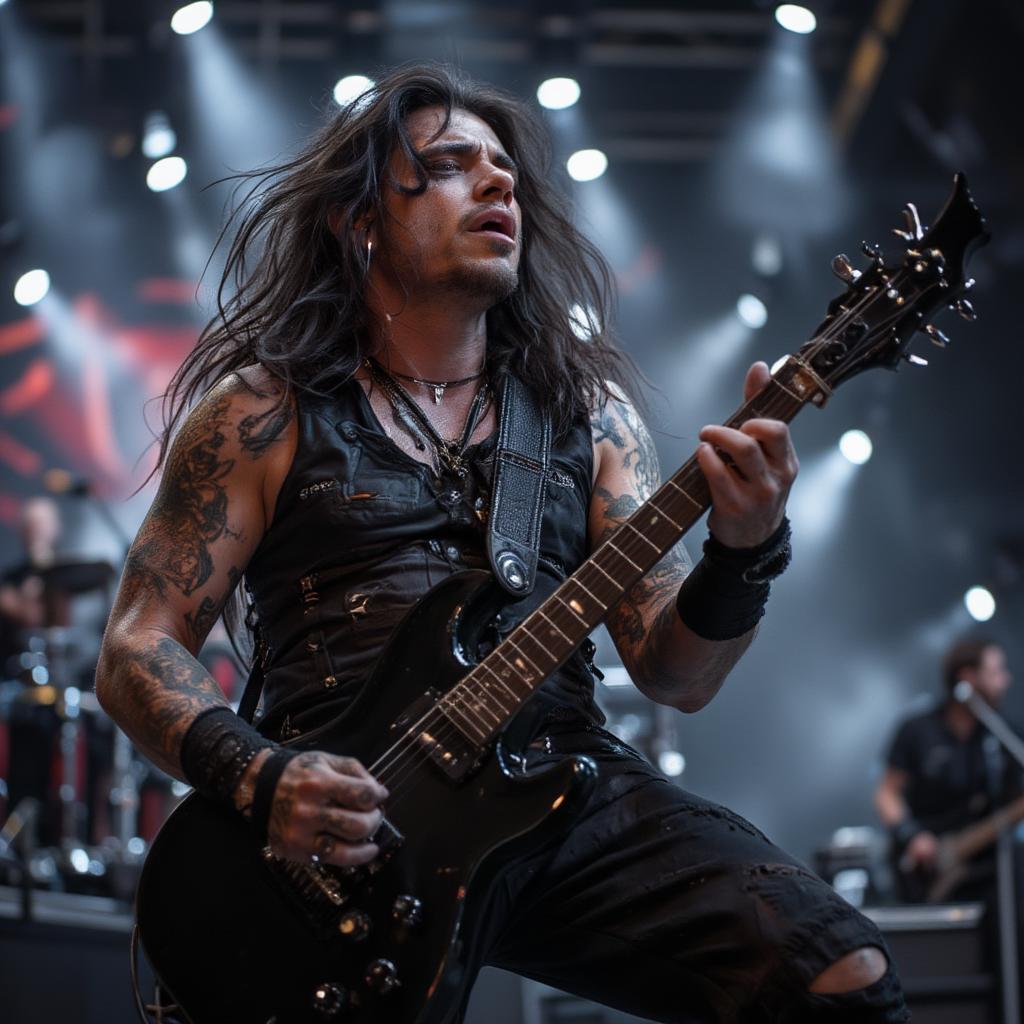Shock Rock: Exploring the Theatrical and Edgy Side of Rock Music
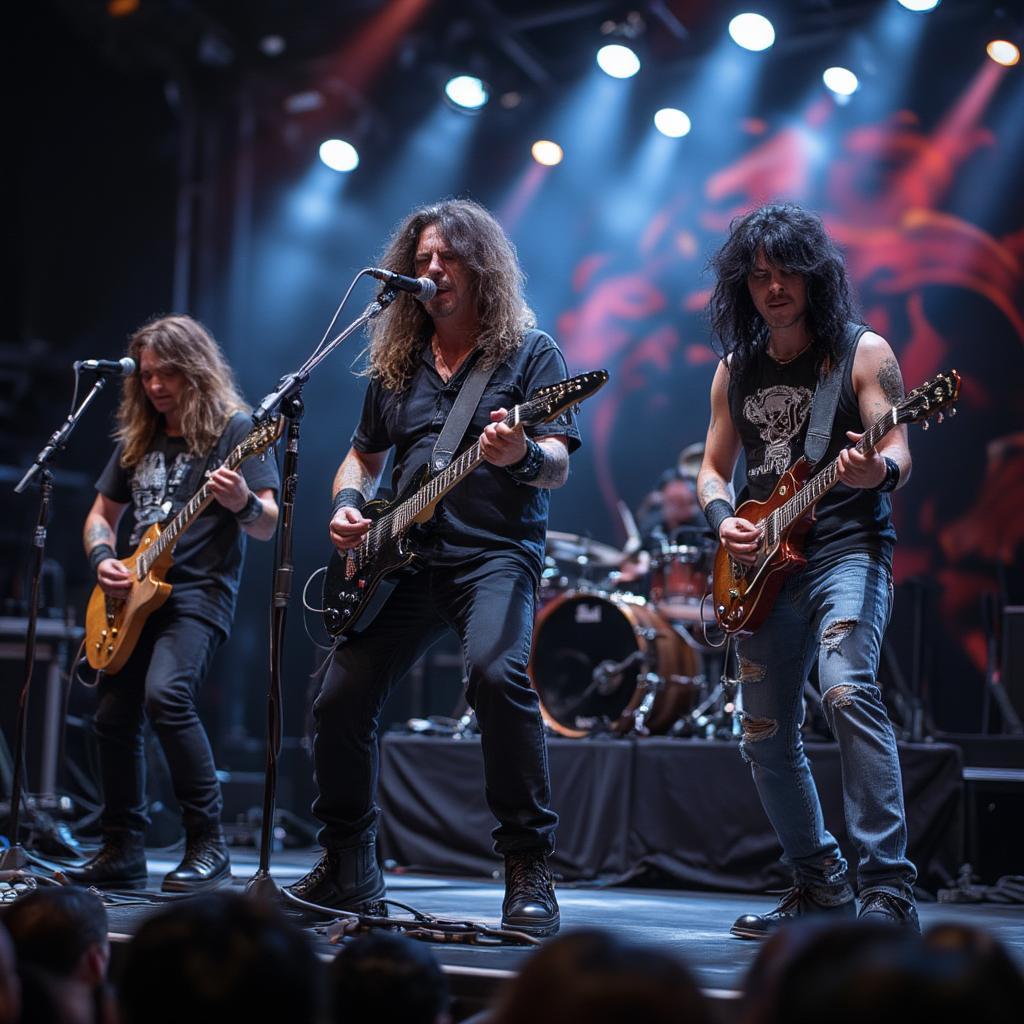
Shock Rock, a subgenre known for its theatrical performances and often controversial lyrics, pushes the boundaries of rock music. It’s a spectacle, a performance art piece that uses music as its foundation, but it’s so much more than just the sounds. It’s about creating an experience, an atmosphere, something that sticks with you long after the final chord is played.
Shock rock isn’t just about loud guitars and heavy drums; it’s a potent blend of music and theatrics. Imagine a rock concert, but amplified – extravagant costumes, dramatic makeup, and stage antics that border on performance art. It’s designed to shock, to challenge, and to make a statement, and it often succeeds in doing just that. But where did this boundary-pushing subgenre come from, and what makes it so captivating?
The Origins of Shock Rock: More Than Just Music
The roots of shock rock can be traced back to the 1960s and 70s, a time of social upheaval and artistic experimentation. Musicians began to push the limits of what was considered acceptable, not just in their music but in their stage personas as well. Think of artists like Screaming Lord Sutch, known for his outlandish costumes, or The Crazy World of Arthur Brown, whose performance of “Fire” was legendary for its dramatic flair. These were some of the earliest pioneers, laying the groundwork for what would later be recognized as shock rock.
These early performances were more than just entertainment; they were a reaction, a statement. They challenged societal norms and pushed the boundaries of what was considered acceptable in music and performance. They set the stage for future artists who would take these ideas even further.
Alice Cooper: The Godfather of Shock Rock
When you think about shock rock, one name immediately comes to mind: Alice Cooper. He took the theatrics of early acts and turned them up to eleven. Cooper’s shows weren’t just concerts; they were theatrical productions, complete with fake blood, guillotines, and elaborate stage props. It was theatrical, it was over the top, and it was absolutely captivating. Alice Cooper, as a performer, became a household name, not just for the music, but for the showmanship. His influence on the subgenre is undeniable.
“Alice Cooper didn’t just play music; he created a full-blown spectacle. He showed us that a rock concert could be a theatrical experience, blurring the lines between music and performance art.” – Dr. Evelyn Reed, Ph.D., Music History.
Cooper’s rise is often linked to the glam rock movement, which championed outrageous costumes and makeup, but Alice Cooper moved beyond glam to create something far more shocking and disturbing. His stage shows were a calculated attack on the complacency of mainstream culture, and audiences ate it up. His influence is vast and still felt today.
Shock Rock’s Unique Sound and Lyrical Themes
Shock rock isn’t defined by a single specific sound; it’s more about the overall attitude and theatricality. However, there are some common threads. The music often incorporates elements of hard rock, heavy metal, and glam rock, creating a raw, powerful sonic landscape. But the sound is often secondary to the spectacle.
Lyrically, shock rock often explores themes that are considered taboo. Death, violence, the macabre, and social commentary are common. Think of songs that challenge societal norms or delve into the darker side of human nature. These aren’t just songs; they’re statements designed to provoke and challenge the listener.
The lyrics often serve to reinforce the visual theatrics. A song about a monstrous character might be accompanied by a performer dressed as such. It is this integration of sound and sight that makes shock rock unique.
The Performance Art Aspect of Shock Rock
Shock rock is more than just music; it’s a performance art that combines music, theatre, and visual aesthetics. The elaborate costumes, the dramatic makeup, the stage props, all of these elements are carefully designed to create a visceral experience. The shows become performances, not just concerts.

The focus isn’t just on the music being played, but on the experience as a whole. It is a multi-sensory event designed to shock, entertain and provoke reaction, making it an art form in itself.
The shows often use elements of horror and the grotesque, pushing the limits of what is comfortable and acceptable. This is why it is referred to as “shock rock” – it is deliberately designed to be shocking.
Shock Rock: A Commentary on Society
At its heart, shock rock is often a form of social commentary. By pushing the boundaries of what’s acceptable, artists are able to explore uncomfortable truths about society and human nature. Themes of rebellion, alienation, and societal hypocrisy are common. They provoke discussion and encourage people to think about the world around them.
“Shock rock isn’t just about being outrageous; it’s about using that outrageousness to make people think about the world around them and the issues we face.” – Professor Thomas Bell, Ph.D., Cultural Studies.
The outrageous nature of shock rock is often a way to grab attention, and then use that attention to communicate a deeper message.
The Evolution and Modern Adaptations of Shock Rock
Shock rock has evolved significantly since its early days. While artists like Alice Cooper laid the foundation, newer bands have taken the genre into new and exciting territories. The rise of industrial rock and metal, with acts like Marilyn Manson, expanded the theatrical and controversial aspects of the genre. Acts like GWAR added elements of sci-fi and performance art into the mix, showcasing that the limits were still being pushed.
Modern bands might use digital technology and multimedia elements in their shows to amplify the experience. The basic premise of shock rock, however, remains the same: to create a spectacle that is both entertaining and thought-provoking. You see elements of it in artists like Ghost, with their dark, theatrical performances.
Shock Rock’s Enduring Legacy: Why It Still Matters
Shock rock is not for everyone, and that is part of its appeal. It challenges, it provokes, and it makes you think. It forces you to confront your own ideas about what is acceptable and what isn’t. Even now, with all the changes in the music industry, it remains a unique genre, blending visual theatrics with musical expression.
It’s a reminder that music can be more than just entertainment; it can be a powerful form of communication, a means of social commentary, and a platform for challenging the status quo. The legacy of shock rock is that it pushes the boundaries, questions everything, and leaves a lasting impression.
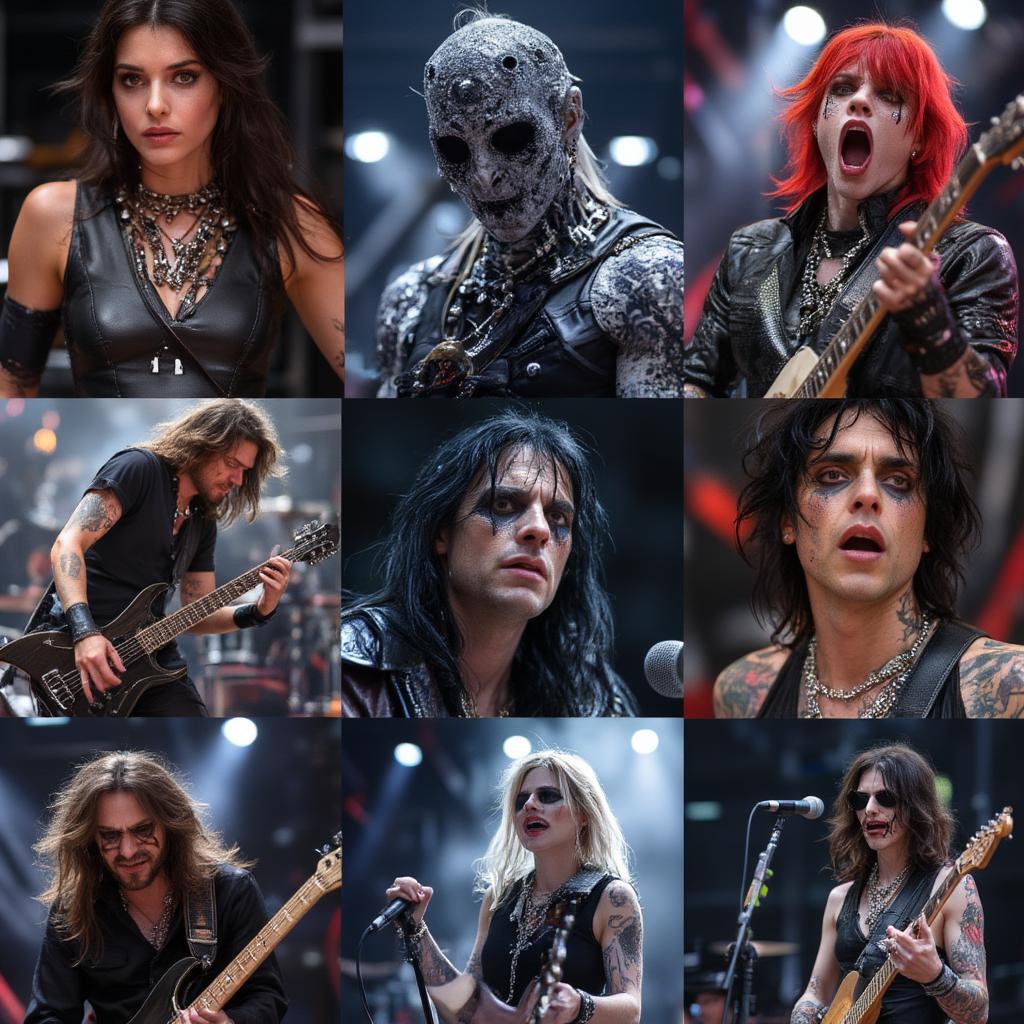
It has inspired countless artists and continues to inspire new generations of performers to push the envelope. Similar to [stoner rock], shock rock has created a community of fans who appreciate the theatrics, the rebellion, and the message behind the spectacle. Its place in rock music history is undeniable.
Conclusion: The Future of Shock Rock
Shock rock is more than just a subgenre; it’s an attitude, a philosophy, and a form of art. It’s a continuous evolution of performance that blends music with visual and theatrical experiences. Whether you love it or hate it, you can’t deny its impact on the world of rock music. It’s a testament to the power of music and performance to challenge, provoke, and inspire. The future of shock rock is in the hands of the artists who continue to take it to new levels and keep the spirit of theatrical, rebellious rock music alive. It’s a testament to the genre’s enduring appeal and how it continues to challenge the norms. The theatrical nature of Alice Cooper certainly paved the way for many artists to come, exploring new ways to shock and captivate audiences.
Frequently Asked Questions (FAQs) about Shock Rock
Here are some frequently asked questions about the genre of shock rock:
-
What exactly is shock rock? Shock rock is a subgenre of rock music that combines music with theatrical, often shocking, stage performances, including costumes, makeup, and props designed to provoke a reaction.
-
Who are some of the pioneers of shock rock? Some of the early pioneers include Screaming Lord Sutch and The Crazy World of Arthur Brown, but Alice Cooper is widely considered the most influential figure in the genre.
-
What are the common themes in shock rock lyrics? Lyrics often explore taboo themes such as death, violence, the macabre, and social commentary, pushing the boundaries of acceptability.
-
Is shock rock just about being shocking? While the name suggests an emphasis on shock value, the genre often uses this to explore deeper themes, like challenging societal norms and questioning the status quo.
-
How has shock rock changed over the years? Shock rock has evolved, with bands incorporating different subgenres of rock and metal, digital technology, and multimedia elements to enhance their performances.
-
How does the theatrical aspect contribute to the genre? The theatrical elements, including costumes, makeup, and props, are crucial in creating a complete sensory experience, making shock rock a performance art as much as a music genre.
-
Is shock rock related to glam rock? Shock rock did overlap with glam rock in the early 70s, but while glam rock emphasized costumes and makeup, shock rock used it as a vehicle for performance art and pushing societal boundaries. There is some overlap, but they are distinct genres.
-
Does shock rock have a specific musical style? Shock rock doesn’t have a single sonic identifier, it does combine elements of hard rock, heavy metal, and glam rock, but the focus is more on the overall attitude and theatrical spectacle than a particular sound.
-
What makes shock rock’s legacy endure? It endures because it combines entertainment, social commentary, and challenges to the norm. It’s a genre that provokes thought and challenges conventions, leading to a lasting impact on rock music.

